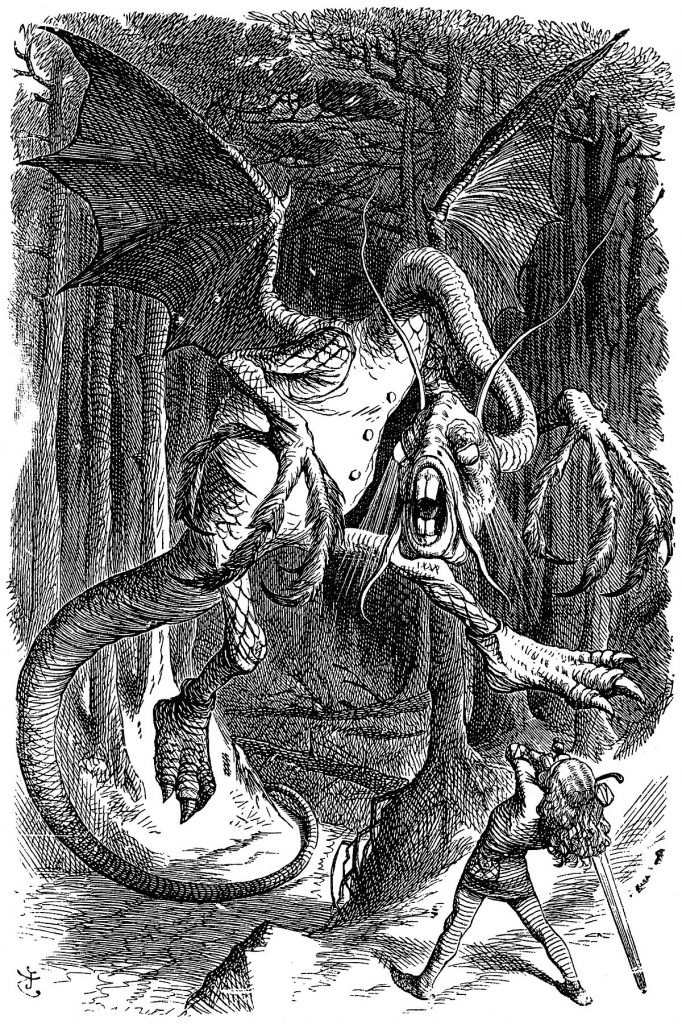
А точнее, какие? Какой? Ведь на самом деле это прилагательное, которое описывает, какими были все the borogoves, кто бы они ни были)
JABBERWOCKY
Lewis Carroll
(from Through the Looking-Glass and What Alice Found There, 1872)
`Twas brillig, and the slithy toves
Did gyre and gimble in the wabe:
All mimsy were the borogoves,
And the mome raths outgrabe.
«Beware the Jabberwock, my son!
The jaws that bite, the claws that catch!
Beware the Jubjub bird, and shun
The frumious Bandersnatch!»
He took his vorpal sword in hand:
Long time the manxome foe he sought —
So rested he by the Tumtum tree,
And stood awhile in thought.
And, as in uffish thought he stood,
The Jabberwock, with eyes of flame,
Came whiffling through the tulgey wood,
And burbled as it came!
One, two! One, two! And through and through
The vorpal blade went snicker-snack!
He left it dead, and with its head
He went galumphing back.
«And, has thou slain the Jabberwock?
Come to my arms, my beamish boy!
O frabjous day! Callooh! Callay!’
He chortled in his joy.
`Twas brillig, and the slithy toves
Did gyre and gimble in the wabe;
All mimsy were the borogoves,
And the mome raths outgrabe.
Вся поэма звучит для неносителя абсолютно по-английски, и только посвященные знают, что половина слов выдумана автором. Слово «Мимзи» в узких кругах уже стало именем нарицательным, после того как одна девочка рассказала этот стих на уроке английского в школе еще в 3 классе, и получила похвалу от учительницы с комментарием «хорошая поэма, но сложная, слишком много незнакомых слов»)))
